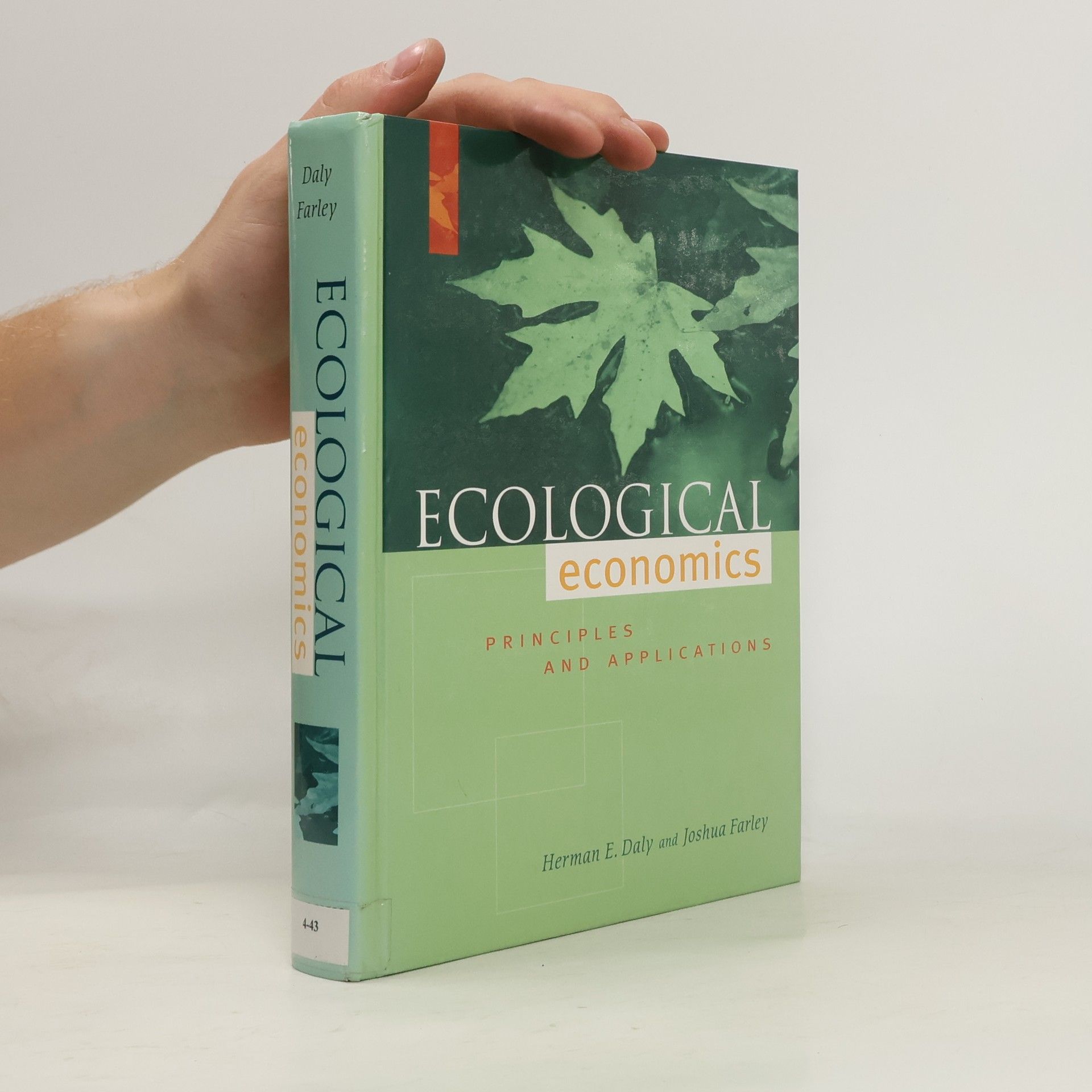Focusing on the emerging field of ecological economics, this introductory textbook critiques traditional economic perspectives and emphasizes the importance of integrating ecological principles into economic analysis. It aims to provide readers with foundational knowledge and insights into sustainable development, resource management, and the relationship between economic systems and the environment.
Herman E. Daly Knihy
Herman Daly, vlivný ekologický ekonom, zkoumá možnosti udržitelného rozvoje a kritizuje koncept nerostoucího hospodářství. Jeho práce se soustředí na teoretické modely stabilního hospodářství a zkoumá, jak ekonomické operace ovlivňují životní prostředí, zejména v kontextu globálních politik. Dalyho vhledy do nerostoucího růstu a jeho dopadů formují debaty o dlouhodobé ekonomické a environmentální rovnováze.





This work addresses one of the fundamental flaws in conventional economics-its failure to consider biophysical and social reality in its analyses and equations. It is an introductory-level textbook that offers a pedagogically complete examination of this dynamic new field. schovat popis
Conventional economics often overlooks the value of clean air, water, species diversity, and social equity, leading to inadequate analyses of human impacts and resource distribution. This introductory textbook addresses these shortcomings by defining a "transdiscipline" that integrates insights from biological, physical, and social sciences. It builds on traditional neoclassical economic thought while introducing an interdisciplinary framework that connects economic growth, environmental degradation, and social inequity. The focus is on three core issues: scale, distribution, and efficiency, guided by the fundamental question of what is truly important to us. The text explains the roles of the earth's biotic and abiotic resources in sustaining life and is organized around key areas of microeconomics, macroeconomics, and international economics, while also considering policy implications. Features such as over thirty text boxes, key term lists, concise definitions, study questions, a glossary, and further readings enhance accessibility. An accompanying workbook employs a problem-based learning approach. This stand-alone textbook uniquely combines theory and practice, making it essential for educating future economists and valuable for undergraduate and graduate courses in related fields.
Beyond Growth
- 264 stránek
- 10 hodin čtení
Herman Daly is probably the most prominent advocate of the need for a change in economic thinking in response to environmental crisis. an iconoclast economist who has worked as a renegade insider at the World Bank in recent years, Daly has argued for overturning some basic economic assumptions. He has a wide and growing reputation among environmentalists, both inside and outside the academy. Daly argues that if sustainable development means anything at this historical moment, it demands that we conceive of the economy as part of the ecosystem and, as a result, give up on the ideal of economic growth. We need a global understanding of developing welfare that does not entail expansion. These simple ideas turn out to be fundamentally radical concepts, and basic ideas about economic theory, poverty, trade, and population have to be discarded or rethought, as Daly shows in careful, accessible detail. These are questions with enormous practical consequences. Daly argues that there is a real fight to control the meaning of "sustainable development," and that conventional economists and development thinkers are trying to water down its meaning to further their own ends. Beyond Growth is an argument that will turn the debate around.